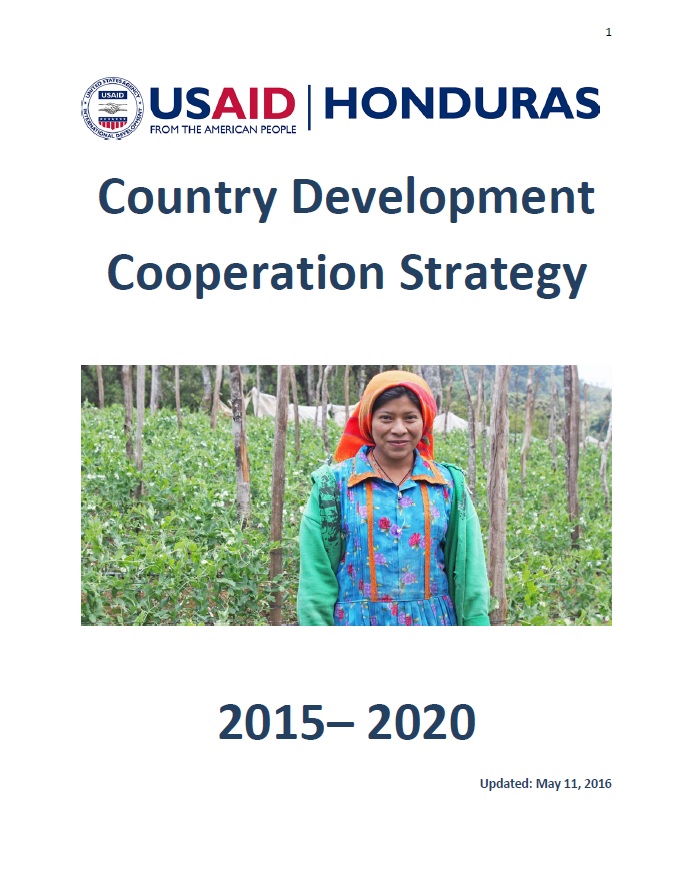Speeches Shim
The USAID/Honduras Country Development Cooperation Strategy (CDCS) goal is a more prosperous and safer Honduras that advances inclusive social and economic development among vulnerable populations.
Honduras' fragile democracy is increasingly threatened by alarming levels of crime and violence, high levels of poverty and food insecurity, corruption, and generally weak governance. These threats to citizen security and economic development are so severe that the Government of Honduras (GOH) has requested outside assistance to address them. Failure to adequately counter these threats directly impacts U.S. security and other national interests. The USAID/Honduras Country Development Cooperation Strategy (CDCS) goal is a more prosperous and safer Honduras that advances inclusive social and economic development among vulnerable populations. USAID /Honduras' emphasis extends to the social and economic development of vulnerable populations, those most at risk of crime and violence and those living below the poverty line, within Honduras to ensure that the economic trajectory of the country is not only upward but also equitable, inclusive, and sustainable. In order to achieve the CDCS goal, USAID will work towards three Development Objectives (DOs):
- DO 1: Citizen Security Increased For Vulnerable Populations In Urban, High-Crime Areas
- DO 2: Extreme Poverty Sustainably Reduced For Vulnerable Populations In Western Honduras
- DO 3: National-level public administration is more transparent and accountable
The CDCS in many ways anticipated the principles of the U.S. Strategy for Engagement in Central America, approved by the U.S. National Security Council in late 2014. The three pillars of security, prosperity, and governance are reflected in our CDCS: security issues are reflected for the most part in Development Objective 1; prosperity as it relates to poverty reduction is reflected in Development Objective 2; and governance is both integrated throughout DO1 and DO2 and is also reflected in DO3 with its focus on strengthening national-level public administration and enhancing civil society’s influence on government decision-making. Complementing the USG strategy, the GOH, together with the Governments of El Salvador and Guatemala, presented their own strategy, the Alliance for Prosperity, which calls for more rapid economic growth to mitigate poverty and crime in order to reduce the underlying causes behind migration to the USA. The USAID/Honduras CDCS for FYs 2015-2019 also reflects the goals of the U.S. Embassy’s FY 2014-2016 and FY 2017-2019 Integrated Country Strategies. Indeed, the momentum that has led to increased attention to the serious issues that persist in Honduras provides an opportunity for USAID/Honduras to strategically utilize additional resources resulting from the implementation of these regional plans.
In pursuit of the development goal, USAID collaborates and coordinates with a cross-sector of actors involved in resolving development challenges in Honduras. This includes other USG agencies such as the State Department’s Bureau of International Narcotics and Law Enforcement Affairs, the Departments of Agriculture and the Treasury, and the Millennium Challenge Corporation, as well as USG security and defense agencies. The success of this strategy will also rely upon strong partnerships with the GOH at national and local levels, community organizations and civil society, and the private sector.
Extended through: December 31, 2020



Comment
Make a general inquiry or suggest an improvement.